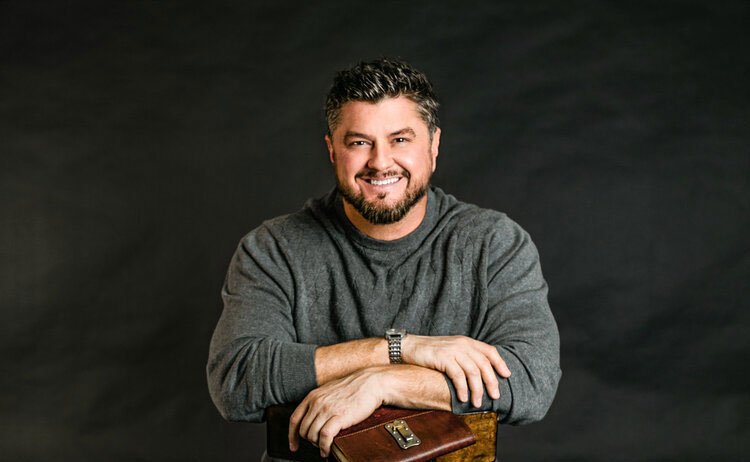The Cycle of Entrepreneurship – CEOWORLD magazine
CEOWORLD magazine – Top Stories – Chief Executive Insights – The Cycle of Entrepreneurship
(adsbygoogle = window.adsbygoogle || []).push({});
For 190,000 years, our Boss Brain flourished by moving with and anticipating the cycles of nature. Like every other animal, we found certainty in the changing seasons. Every ending was a new beginning. Birth, death, and rebirth were as inevitable as the sunrise. We found comfort in Mother Nature’s predictability. We could always count on her to bring spring thaws and summer bounties. Then, we made a sudden shift. Life became linear.
We are now obsessed with straight lines. Straight highways, straight fences, straight buildings. This is how we see our lives now—as a linear journey from point A to point B. We even rewrite the stories of our lives to form the straightest path to our current situation.
Because of this obsession with all things linear, we now view our collective history as behind us and our future in front of us. We ignore how our own biases and lack of self-awareness cause history to repeat itself over and over again. The modern brain moves on an imaginary pathway that leads in one direction as if our cultural and social evolution also represents biological progress. It’s logical to look at our recent technological prowess and assume that we are smarter than our ancestors. And, for the most part, that’s true.
For virtually the entire period in which we have measured human intelligence, the average IQ has risen by about three points a decade—a phenomenon known as the Flynn Effect. The steady uptick has lasted for decades. But recent research has yielded frightening news: the trend has reversed.
In the past three decades, the average IQ has fallen by more than seven points, a rate equal to its previous ascent. Our journey is no longer linear. Our trajectory has changed. That is, we can no longer claim to be collectively smarter than previous generations. Scientists concede the possibility of an ebb and flow within our brains, where intelligence rises and falls over time. Ebbs and flows, beginnings and ends, death and rebirth. It seems even the development of our brains flows in a cycle.
The Four Primary Instincts of the Boss Brain also flow within a cycle—the Cycle of Entrepreneurship. They flow like the changing of the seasons. Each one is useless without the next.
The Future of Entrepreneurship
Based on the current trajectory, 99% of the American workforce will work for the other 1% sometime in the mid-2040s. Everyone is familiar with the 1% when talking about wealth distribution and income, but what about legacy creation? What about the innate human desire to explore our limits and build something that lasts long after we are gone? What about our inner calling? If we allow just one in 10 of us to experience the fulfillment and self-actualization that comes with entrepreneurship, we are sacrificing our potential on the altar of certainty.
For the self-employment percentage in America to reach its historic highs, more than 25 million employees would have to become entrepreneurs. Based on current averages, that would create 80 million jobs and generate 20 trillion in economic output—an amount just short of our national debt. If that happened, the effects on our society would be immeasurable.
Increased entrepreneurship would yield greater health, happiness, civic engagement, and charity while lowering crime, depression, stress, and disease. Small businesses have the same positive effect on society as social services. But unlike social services, small businesses are not funded by taxpayer dollars. It’s counterintuitive to say, but if you want to help your community, start by helping yourself. That is how it starts. That is how our nation gets better. That is what topples the first domino. It takes only one entrepreneur to start the chain reaction.
One small business might not sound like much, but its impact ripples through society and through time. The cycle of entrepreneurship overflows into families, charities, churches, and schools, empowering the less fortunate and future generations. Sons and daughters of entrepreneurs are significantly more likely to be business owners themselves. From one generation to the next, self-reliance weaves itself into the fabric of our society and strengthens us. It transforms communities. Entrepreneurship shaped America.
If those who founded America had been willing to submit to economic subservience, the country might not exist today. The speed of our unprecedented rise as a nation wasn’t due to technological or economic advantages. Those were mere byproducts of the real driver of American ingenuity—our entrepreneurial spirit. Immigrants didn’t flood Ellis Island in hopes of finding a stable and predictable job. They came here to live the real American Dream. Our country only exists because our ancestors refused to take a place in the spinning cogs of an empire.
We now find ourselves at a pivotal moment in our nation’s history. We are becoming victims of our success. As more and more of us seek certainty at all costs, some who sleep under the blanket of freedom question how that fabric is woven. They want to trade our individual liberties and our right to pursue happiness for the certainty of a meager existence. They want to give control back to the tyranny that we fought to take it from. That won’t require a revolution. Given the current trajectory of entrepreneurship in America, that will require only that we do nothing at all.
America has suffered through forty-seven economic recessions in its history and fought in thirteen major wars. The U.S. has seen its share of hardship. Each time, American entrepreneurs have answered the call. Whether it’s steel factories manufacturing weapons or car assembly lines creating ventilators, the government and the world always turn to American entrepreneurs to save humanity. Now, it’s time for aspiring entrepreneurs to save themselves.
The blanket of freedom that we all sleep under is warm and comfortable. One might say that there is no real need to leave a steady job and take even a measured risk. But there was no need for us to leave our caves, no need for us to farm the earth, no need for us to create this modern society. The world we live in didn’t even exist for more than 99% of our existence. But, at some point in human history, one of our ancestors took a hard, right turn. She could have accepted a life of mediocrity and stayed in her cave. She could have raised her kids there. But she didn’t, so here we are.
The precipitous decline of American entrepreneurialism is enigmatic, to say the least. The entrepreneurship gap grows every year despite our overwhelming desire for self-employment. The irony of it all is that we have risen to the challenge each time humanity has been called upon. Each time the world needs individual effort, we step up.
Now, you must step up. You must choose sides in the ancient battle between optimism and uncertainty. That decision will determine if your fate is to be part of someone else’s legacy or if you will create your own.
You can choose optimism and recapture the spirit of American entrepreneurialism. Or you can ignore your instincts and succumb to the need for certainty. You must decide, and that decision will determine the future of entrepreneurship.
Personally, I am optimistic that we will rise to meet this challenge. Because if history has taught us anything, it’s this: our entrepreneurial spirit will always prevail. Nothing could be more certain.
Written by Tra Williams.
Track Latest News Live on CEOWORLD magazine and get news updates from the United States and around the world. The views expressed are those of the author and are not necessarily those of the CEOWORLD magazine. Follow CEOWORLD magazine on Twitter and Facebook. For media queries, please contact: info@ceoworld.biz
CEOWORLD magazine – Top Stories – Chief Executive Insights – The Cycle of Entrepreneurship
Copyright © 2021 CEOWORLD magazine.



